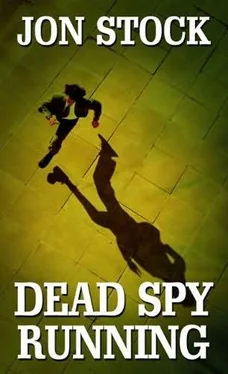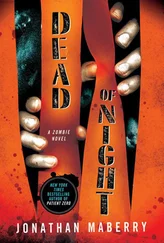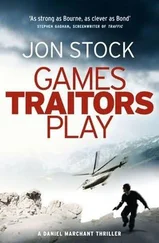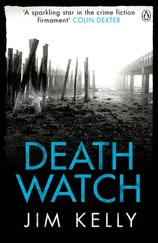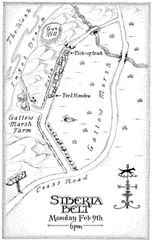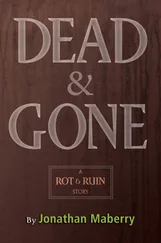Jon Stock - Dead Spy Running
Здесь есть возможность читать онлайн «Jon Stock - Dead Spy Running» — ознакомительный отрывок электронной книги совершенно бесплатно, а после прочтения отрывка купить полную версию. В некоторых случаях можно слушать аудио, скачать через торрент в формате fb2 и присутствует краткое содержание. Год выпуска: 2009, Издательство: St. Martin, Жанр: Триллер, на английском языке. Описание произведения, (предисловие) а так же отзывы посетителей доступны на портале библиотеки ЛибКат.
- Название:Dead Spy Running
- Автор:
- Издательство:St. Martin
- Жанр:
- Год:2009
- ISBN:нет данных
- Рейтинг книги:3 / 5. Голосов: 1
-
Избранное:Добавить в избранное
- Отзывы:
-
Ваша оценка:
- 60
- 1
- 2
- 3
- 4
- 5
Dead Spy Running: краткое содержание, описание и аннотация
Предлагаем к чтению аннотацию, описание, краткое содержание или предисловие (зависит от того, что написал сам автор книги «Dead Spy Running»). Если вы не нашли необходимую информацию о книге — напишите в комментариях, мы постараемся отыскать её.
Dead Spy Running — читать онлайн ознакомительный отрывок
Ниже представлен текст книги, разбитый по страницам. Система сохранения места последней прочитанной страницы, позволяет с удобством читать онлайн бесплатно книгу «Dead Spy Running», без необходимости каждый раз заново искать на чём Вы остановились. Поставьте закладку, и сможете в любой момент перейти на страницу, на которой закончили чтение.
Интервал:
Закладка:
Marchant remembered the time he fell out of love with the birthday elephant, or at least with the mahouts who brought them up from the slums by the river. He and Sebastian were sitting at the front of a gaggle of children, directly behind the mahout , when he saw the metal spike that had been driven deep into the animal’s thick and bloodied neck. The mahout twisted the spike whenever he barked an order, desperate to assert his waning authority over the animal.
The Gymkhana Club felt as if it had been waning for the past hundred years. A chowkidar at the gate searched under the car with a mirror before waving them on. Marchant told the driver to wait for him in the car park to the side of the whitewashed Lutyens building, explaining that he might be back in five minutes, or maybe an hour. ‘ Koi baat nay ,’ he replied, rocking his head gently from side to side before driving off.
Marchant paused beneath the large porch, catching the perfume of bougainvillea tumbling over the nearby perimeter wall. Above him, crows were roosting, their cries faintly eerie. He hadn’t been here before, but his father often used to talk about the place. Under British rule it had been known as the Imperial Gymkhana Club, but the Imperial had been dropped after 1947, and now its tennis courts, Lady Willingdon swimming pool, library and bridge drives were for the exclusive use of Delhi’s social elite, many of whom had waited thirty years to become a member.
Non-Indian guests were welcome, but Marchant remembered his father telling him of an unsettling custom at the bar that if a ‘Britisher’ bought a round of drinks, he couldn’t expect the favour to be returned. Marchant’s father had liked his Kalyani Black Label beer, but had found that the only way to quench his thirst was to keep standing rounds for everyone. Buying a drink solely for himself would have caused offence, and given that British diplomats often ventured to the Gymkhana Club to gauge the military’s current level of hostility towards neighbouring Pakistan, a subject about which they were especially prickly, it was important to keep the members onside.
‘I’ve come to talk to Kailash Malhotra,’ Marchant said to the khaki-uniformed man at the colonnaded reception.
‘ Colonel Malhotra?’ the man checked him.
Marchant nodded, taking in the colonial setting — high ceilings, the whiff of floor polish, a sign saying that ‘bush’ shirts were prohibited — as the man looked through a list on a clipboard. Marchant could detect cigar smoke coming from somewhere, and it took him a few moments to realise that a distant clinking sound was the noise of billiard balls colliding. Marchant would be back at his Wiltshire boarding school if he smelt boiled cabbage for dinner.
‘He’s playing bridge in the card room,’ the man said finally.
‘I thought they didn’t get underway until eight.’ Marchant had made a call earlier.
The man looked at Marchant’s crumpled shirt for a moment, unable to conceal his disdain, then glanced at a large clock on the wall to his right. ‘Right now they are having sundowners in the bar. Is he expecting you?’
‘Yes. Could you tell him David Marlowe’s here?’
Ten minutes later, Marchant was sitting opposite Colonel Malhotra in a corner of the bar, sipping a ‘ burra peg’ of Chivas Regal.
‘When you were a naughty little boy — my God, you were so naughty — you used to call me “uncle”,’ the colonel said, laughing, one hand patting Marchant’s knee. ‘You can still call me uncle. Uncle K. It’s the name your dear father always used.’
Marchant had only very distant memories of Uncle K: watching Mother India and other old Hindi movies on a Sunday afternoon at his house, where he and Sebastian would eat pistachio kulfi and be told off by their mother for complaining that it didn’t taste like real ice cream. Uncle K used to sing along to all the songs, tears often streaming down his face. Afterwards, he would retire with Marchant’s father to another part of the house and talk in low voices while his mother fielded the children.
When Monika had mentioned the name Malhotra at the airport, he couldn’t be certain it was the Uncle K of his early childhood. It was only when the colonel had walked towards him in reception, open-armed, that Marchant knew for sure it was the same man. Now, as they talked, more memories came back: the discreet acceptance of a gift of Scotch brought over from Britain; the blunderbuss on the wall, once used for shooting tigers; the touché shaking of hands after cracking a gag; Uncle K’s avuncular kindness when Sebastian was killed.
‘Your father was very keen that you didn’t grow up resenting India because of the traffic accident,’ he said. ‘It could have happened anywhere.’
‘He did a good job. It’s great to be back.’
Marchant didn’t tell him that he hadn’t visited Delhi since they had left as a grieving family twenty years ago. He had backpacked through India in his year off, paving the way for David Marlowe, but he had made a point of travelling through the south, and then up into the Himalayas, consciously bypassing Delhi.
‘I fear your mother never got back her health, though,’ Uncle K said.
‘No,’ Marchant replied, but he was no longer listening. His attention had been distracted by a man who had walked up to the bar, briefcase in hand.
‘I still feel bad about your father’s funeral. It just wasn’t possible.’
‘No. Can we talk about our mutual friend?’ Marchant asked, turning back to Uncle K. ‘We might not have much time.’
‘Tell me what you want to know.’
‘Why did my father visit him?’
Uncle K paused, glancing around the bar. ‘I tried to recruit him once, a couple of years back. I was called out of retirement especially, told the whole thing was deniable. There was some sympathy there, but his hatred of America? It was too much. We had to drop him.’
‘Was my father trying to recruit him too?’
Uncle K lost his smile. ‘There’s something else you should know about Salim Dhar, but I’m not the person to tell you. It can only come from him.’
Marchant glanced again at the man at the bar, who was looking back at them. He was still holding his briefcase, gripping the handle too tightly.
‘Can you show me around this place?’ Marchant asked the colonel, interrupting him.
‘What, now?’
‘I need a bit of fresh air.’ He gestured at the table next to him, where a brigadier was drawing on a large cigar.
‘Of course,’ Malhotra said, picking up on Marchant’s anxiety. ‘It’s safe to talk here, I know them all,’ he joked, nodding at the brigadier as he rose from his chair. ‘They’re all far too busy discussing today’s hodgepodge with the cricket to listen to us. But why not? Let me show you round.’
Marchant knew they were too late when the man at the bar looked at them again. All he had time to do was duck.
29
It was Alan Carter’s first visit to Legoland, but after the events in Poland, he knew it wouldn’t be his last. Spiro had been recalled to Langley after he lost Daniel Marchant. The DCIA was furious. Carter had taken over, fast-tracked to the head of the National Clandestine Service, Europe. It was a personal success for him, but he also knew it was a victory for the new thinking that was sweeping through the Company as it tried to refocus on its core business of espionage, following the intelligence disasters of 9/11 and Iraq.
Carter had been present at the interrogation of KSM, and also of Zayn Abu Zubaida, the first of the big-name AQ detainees to be dunked. But waterboarding wasn’t his style. Nor were the freelance deniables who made up the rendition teams. Carter had joined the Agency with a vulpine belief in espionage, that the best way to beat the enemy was to infiltrate its leadership, rather than drown a few hoods. Spiro used to tell him not to worry, that renditions should be judged not by whether they were right or wrong, but by what the President thought. And their former President had preferred not to know.
Читать дальшеИнтервал:
Закладка:
Похожие книги на «Dead Spy Running»
Представляем Вашему вниманию похожие книги на «Dead Spy Running» списком для выбора. Мы отобрали схожую по названию и смыслу литературу в надежде предоставить читателям больше вариантов отыскать новые, интересные, ещё непрочитанные произведения.
Обсуждение, отзывы о книге «Dead Spy Running» и просто собственные мнения читателей. Оставьте ваши комментарии, напишите, что Вы думаете о произведении, его смысле или главных героях. Укажите что конкретно понравилось, а что нет, и почему Вы так считаете.
